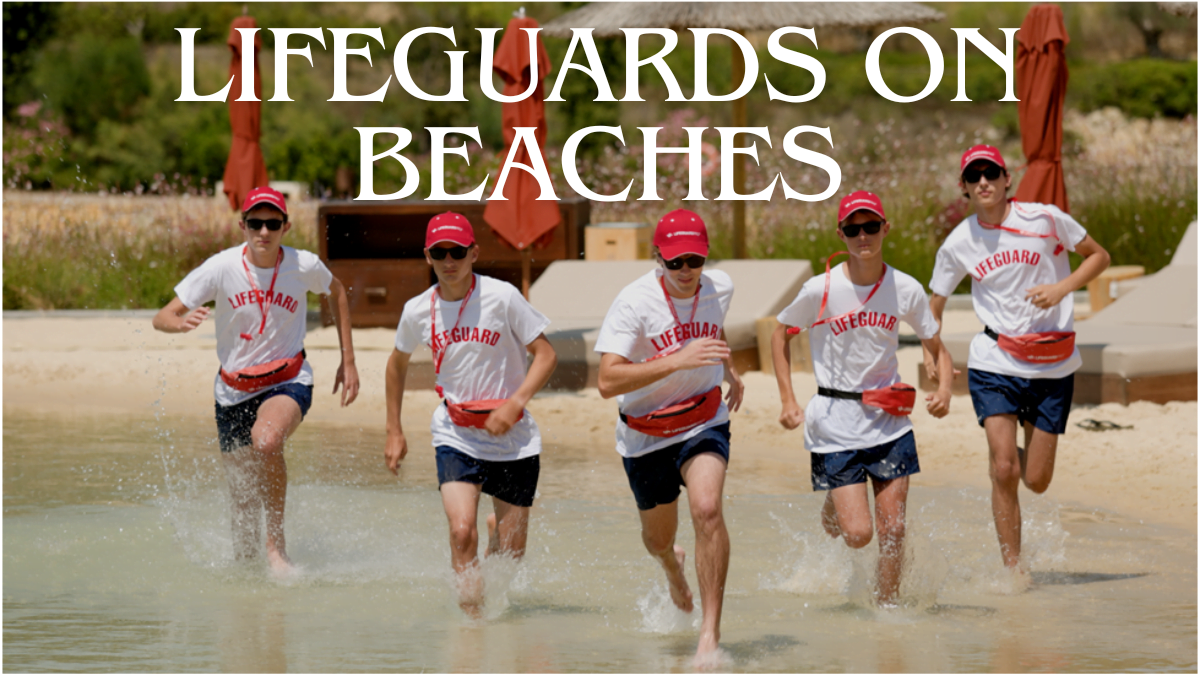Lifeguards are the unsung heroes of beaches, epitomizing a commitment to safety and ensuring that visitors can partake in the sun, sand, and surf without pointless risks. Their presence isn’t simply emblematic; it’s a proactive position towards protecting lives and preventing accidents in aquatic environments.
How about we dive into the multi-layered liabilities that lifeguards shoulder to keep our beaches functional and enjoyable for everybody?
Preventing Accidents Through Vigilance
At the heart of a lifeguard’s obligation is consistent vigilance. From the moment they take their positions, their eyes filter the water with faithful attention. This vigilance isn’t just about spotting swimmers in distress; it’s likewise about distinguishing potential hazards before they become dangers.
By remaining cautious, lifeguards can mediate quickly, whether it’s a striving swimmer trapped in a tear current or a youngster meandering excessively near dangerous marine life.
Educating Beach Visitors on Water Safety
Past their jobs as heroes, lifeguards are additional instructors. They draw in beach visitors, bestowing pivotal knowledge about water safety. This incorporates illuminating them about the perils of major areas of strength regarding, the significance of swimming inside designated regions, and the risks related to dismissing advance notice signs.
Through clear communication and educational outreach, lifeguards enable beachgoers to make informed choices and stay away from pointless risks.
Quick Response to Emergencies
Regardless of all safeguards, emergencies can in any case happen. That is where lifeguards’ training and availability come into play. Whether it’s a swimmer in distress, a medical emergency, or a water-related accident, lifeguards are prepared to answer quickly and definitively.
They perform water salvages with accuracy, direct first aid when required, and coordinate flawlessly with emergency services to ensure the most ideal outcome in any situation.
Maintaining Request and Authorizing Rules
Safety on beaches isn’t just about answering emergencies; it’s likewise about maintaining requests and upholding rules. Lifeguards play a fundamental part in ensuring that beachgoers comply with safety conventions and regulations.
This incorporates rules like not making a plunge into shallow water, no liquor consumption, and maintaining a protected separation from wildlife. By upholding these rules, lifeguards add to a more secure and more enjoyable beach experience for everybody.
Collaboration with Other Safety Personnel
Powerful cooperation is essential in ensuring beach safety. Lifeguards work together intimately with other safety personnel, for example, beach watch officials and emergency medical groups. This collaboration considers a planned response in the event of enormous-scope emergencies or occurrences requiring specialized expertise.
By cooperating consistently, lifeguards and other safety professionals make a bound together against potential risks and hazards.
Continuous Training and Skill Development
Lifeguards don’t simply depend on beginning training; they take part in continuous skill development to remain sharp and ready. Lifeguard training programs cover a scope of essential skills, including water salvage strategies, CPR, first aid, and risk assessment.
Lifeguards take part in continuous training meetings and reproductions to level up their skills and ensure they’re prepared to deal with any situation that emerges.
Significance of Lifeguard certification
Integral to a lifeguard’s credibility and competence is lifeguard certification. This certification validates that a lifeguard has finished thorough training and exhibited capability in essential lifeguarding skills. Beaches with certified lifeguards give reassurance to visitors, flagging a commitment to maintaining safety standards and professionalism.
Advancing Lifeguard classes Near Me
For people trying to become lifeguards, searching out lifeguard classes near me is the first step towards satisfying that objective. Lifeguard classes presented by respectable associations cover fundamental points, for example, water salvage procedures, CPR, emergency response conventions, and beach safety awareness. These classes furnish hopeful lifeguards with the knowledge and skills they need to succeed in their jobs.
Enhancing Public Awareness of Beach Safety
Lifeguards likewise play a pivotal part in enhancing public awareness of beach safety. Through outreach programs, educational drives, and community engagement, lifeguards instruct the public about potential risks and preventive measures. By cultivating a culture of safety and responsibility, lifeguards add to establishing a more secure beach environment for everybody.
The Job of the American Lifeguard Association
The American Lifeguard Association (ALA) remains a reference point of excellence in lifeguard training and certification. Lifeguards certified by ALA stick to severe standards, ensuring that they are exceptional in dealing with the requests of their jobs professionally and really.
ALA has been very active regarding water safety on national electronic and print media. Recently Washington Post has quoted their national spokesperson in one of their articles about the beach etiquettes. Beaches that utilize ALA-certified lifeguards focus on safety and quality of service, giving beach visitors peace of mind.
Final Word: Lifeguards as Guardians of Beach Safety
In conclusion, lifeguards assume a critical part in guarding beaches, enjoyable, and serviceable for visitors. Their obligations incorporate vigilant reconnaissance, quick response to emergencies, educational outreach, rule enforcement, and collaboration with other safety personnel.
Lifeguards’ continuous training, lifeguard certification, and alliance with trustworthy associations like the American Lifeguard Association highlight their commitment to professionalism and greatness. As guardians of beach safety, lifeguards ensure that everybody can lounge in the beauty of the beach with confidence and peace of mind.

Remarkable vision!